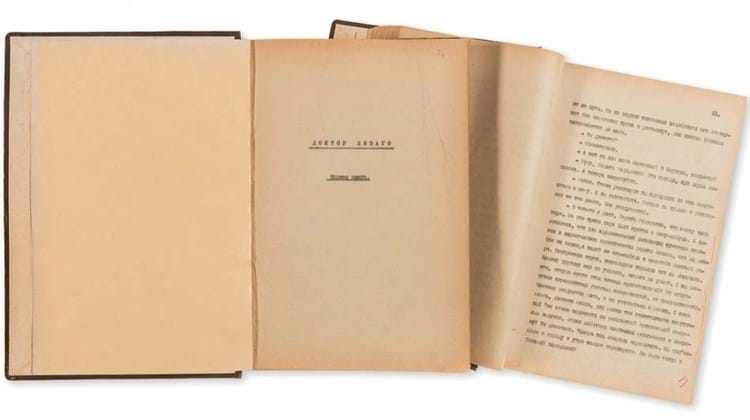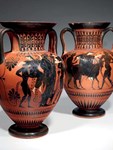Estimated at £100,000-150,000 at the sale in London on May 31, it was knocked down to a private collector on the phone against competition from another interested party in the room.
It was the saleroom’s second-highest price for a book to date, only behind the £160,000 bid at Forum’s inaugural sale in July 2016 for a copy of Cicero’s Epistolae familiares printed by Venice’s Aldine Press in 1502.
The two-volume Doctor Zhivago typescript was one of only six that left Russia before the novel’s first publication in 1957. Known as ‘the George Katkov copy’, the typescript dates from c.1956 and still remains in its original brown cloth bindings.
This particular copy was instrumental in the first English translation of Doctor Zhivago, as well as the BBC’s first broadcast of the book in Russian.
The typescript was sent to George Katkov (1903-85), a Russian academic who became senior lecturer in Russian history at St Anthony’s College, Oxford, and who had met Pasternak when travelling to Moscow in 1956.
The author requested that Katkov assist in the English publication of Doctor Zhivago and arranged for this typescript to be sent to Katkov, most probably via diplomatic channels, in early 1957.
Pasternak and Zhivago timeline
• Boris Leonidovich Pasternak (1890-1960) was born in Moscow. His father was a painter.
• Pasternak was already an established poet when he began writing Doctor Zhivago in 1945 (although some of the more autographical passages date from the 1910s-20s). He finished it in 1955.
• The book first appeared as an Italian translation published by Giangiacomo Feltrinelli in November 1957. The typescript that Pasternak sent to Italy is now located at the Feltrinelli Foundation in Milan.
• Doctor Zhivago helped Pasternak to win the 1958 Nobel Prize for Literature. It later became adapted into a famous film starring Omar Sharif and Julie Christie.















